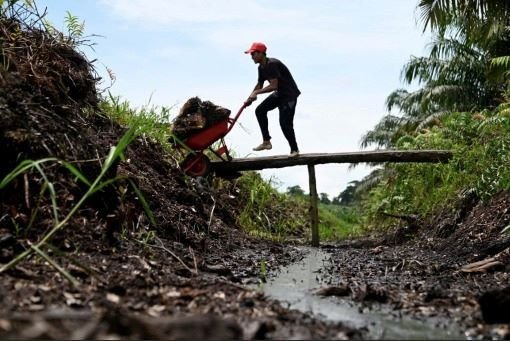JAKARTA: Indonesia has the opportunity to wrap up a long-delayed free trade deal with the European Union (EU) after the bloc officially placed Indonesia in its “standard-risk” deforestation law category, a step seen by businesses as a signal that could boost exports of palm oil, coffee, cacao and other commodities.
“Yes, we’re in the middle of finalisation, and the EU seems to be easing now as we near the final stage,” Trade Minister Budi Santoso said last Wednesday, confirming that Indonesia was not among the countries deemed high risk under the EU’s Deforestation Regulation (EUDR).
He noted that the EU’s move emerged during the final talks to conclude the Indonesia-EU Comprehensive Economic Partnership Agreement, which was expected to be finalised by mid-year.
Negotiations on the trade pact began in 2016, but multiple deadlines to conclude them have been missed. “A lot of changes are happening, including things like that,” he added.
Indonesia, the world’s largest palm oil producer, has raised concerns over EU law banning imports of commodities linked to deforestation after 2020, as well as requiring traceability and geolocation coordinates of commodities subject to the regulation, effective for large companies from the end of this year.
The country was featured among standard-risk countries while only Russia, Belarus, North Korea and Myanmar were placed in the high-risk category, Reuters reported last Friday.
The rule’s country benchmarking system classifies nations as low, standard or high risk to minimise the EU’s role in global deforestation, with lighter checks for low-risk countries. The decision to categorise only those four countries as “high-risk” has raised eyebrows and sparked criticism from environmental groups, with a coalition of 40 non-governmental organisations warning the European Commission in an open letter that “premature conclusions could politicise the benchmarking process”.
Businesses welcomed Indonesia’s exclusion from the high-risk group, but many said the real prize remained the “low-risk” label, a classification that would ease due diligence and cut export costs, especially for small players.
“It’s a good thing for us, especially for our small and medium-sized exporters still struggling with the high cost of traceability,” Indonesian Coffee Exporters and Industries Association chairman Moelyono Soesilo told The Jakarta Post last Friday. — The Jakarta Post/ANN

